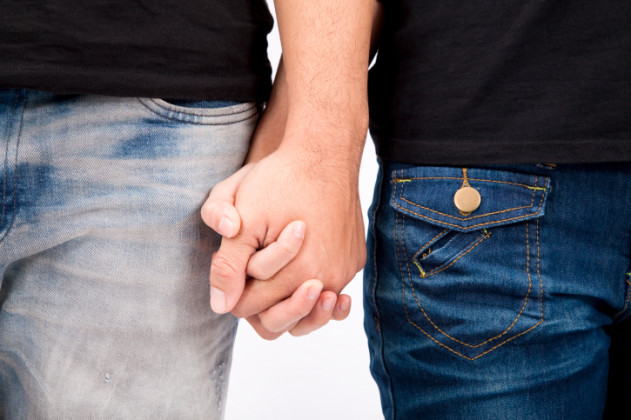Valentine’s Day is a lot like New Years Eve, in the sense that for those who buy the hype, it never measures up. As many anti V-Day proselytizers point out, the holiday has become a consumerist hoax, pressuring coupled folks to buy each other expensive boxed chocolates, flowers, jewelry, and lingerie and willingly partake in overpriced, underwhelming romantic prix fixe dinner menus—all to symbolize their L.O.V.E. It’s a day that makes many un-coupled folks feel like losers; celebrates romantic love over all other sorts of love; turns love into a commodity that can be bought and sold; and makes otherwise rational folks behave like buffoons. You could say it’s not my favorite holiday.
It’s not Valentine’s Day specifically that I take issue with, though. An excuse to do something nice for someone you love is not, on its face, a bad thing. (I have fond childhood memories of my parents giving my sister and me made-in-China stuffed animals holding chocolate hearts.) And I believe that forming loving bonds and connections with other humans is pretty much the most important thing most people will ever do, not to mention it’s the best predictor of a happy and meaningful life (lots of research bears that out). But let’s be clear: V-Day does not have a monopoly on love (nor do lavish weddings or other public shows of “competitive romance”), and most romance is not born out of obligation but out of genuine affection and inclination.
That’s the problem with the whole Romance Industrial Complex (RIC). It thrives off making us feel inadequate in our romantic lives. Just as the diet industry will not affirm your real body the way it is—wrinkles, cellulite, and all—the romance industry will never affirm your existing (gasp!) imperfect relationship (or god forbid, lack of relationship). It will not affirm the mundane kindnesses of daily life that cannot be bought or sold. It’s not simply that the RIC is limiting, lazy, and unimaginative; the trouble is how it crowds out and renders unimportant all the less-flashy, more authentic gestures that actually constitute the core of the relationship between people who love each other.
To my mind, this Industry O’ Romance includes the “prince-charming” fantasies of childhood books, the entire film genre known as rom-coms, diamond-hawking jewelry stores, The Bachelor franchise, and those irksome eHarmony ads about meeting your perfect match. If it weren’t for Whitney’s recent untimely passing, I would add the song “I Will Always Love You” to this offensive list. (The best “love” songs are usually about heartbreak, not everlasting love, if you ask me). The RIC does not have the monopoly on love—it has the largest microphone.
I recently made a toast at the engagement party of two close friends where I ended by saying: “Marriage, and all relationships, are hard, and they get messy at times. But that’s why you have a close community of friends—to support you and remind you that if anyone can make it work, the two of you can.” (OK, I was drunk at the time and it may not have been that articulate, but you get the point I was trying to make). I swear there was a quiet lull afterwards; the kind that happens when you say something just a teeny bit taboo. I’ve noticed that this is what typically happens when anyone deigns to call the RIC fairytale into question in public. People become so invested in it that we stop being honest out of fear of judgment; no one wants to open him or herself up to any public scrutiny that could call the validity of their relationships into question. The result is that we hesitate to say out loud that romantic love can be intense and intoxicating and safe and nurturing, but at some points it will also be challenging and frustrating and will require patience, growth, and compromise.
That’s why it’s incumbent upon those of us who love, are loved, and who understand the honest, messy, complex nature of love to push back against anything that defines it narrowly, rigidly, and in a way that neglects anything not sanctioned by Hallmark. It requires recognizing that not being in a relationship does not mean you lack love. It means acknowledging and validating quiet but substantive gestures, along with the flashy. It demands making sure that you don’t only ooh and ahh over a big diamond ring or public flower delivery to the office, but also over compromises that’d be easier not to make, communicating about difficult issues in a compassionate way, or leaving someone the last bite of dessert. For me, the height of romance is when my man takes the dog out for walk when it’s cold or raining and I’m tired. Or when he vacuums without being asked (which, to his credit, he does often). The most romantic words I’ve ever heard him utter were: “I’m sorry that upset you; I’m going to try to do it differently in the future.”
We spent last night eating Five Guys burgers and fries on our living room floor picnic-style, swigging from a bottle of red wine while wading through the DVR. It may not have been Hollywood’s version of a romantic Valentine’s Day dinner, but it was true to who we are: honest, imperfect, and, yes, like love, sometimes messy. And when it was over, he even walked the dog.
Nicole Rodgers is the Co-Founder and Editor-in-Chief of Role/Reboot.
Related Links:

